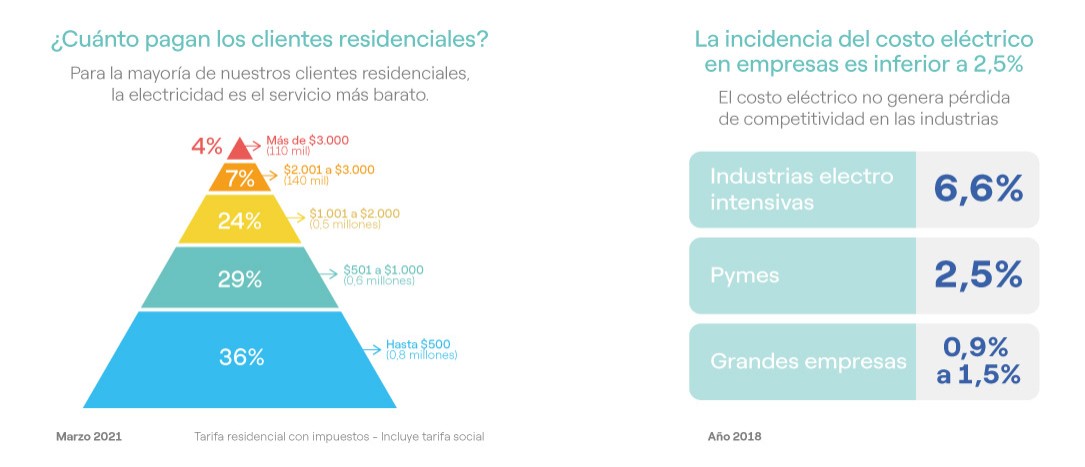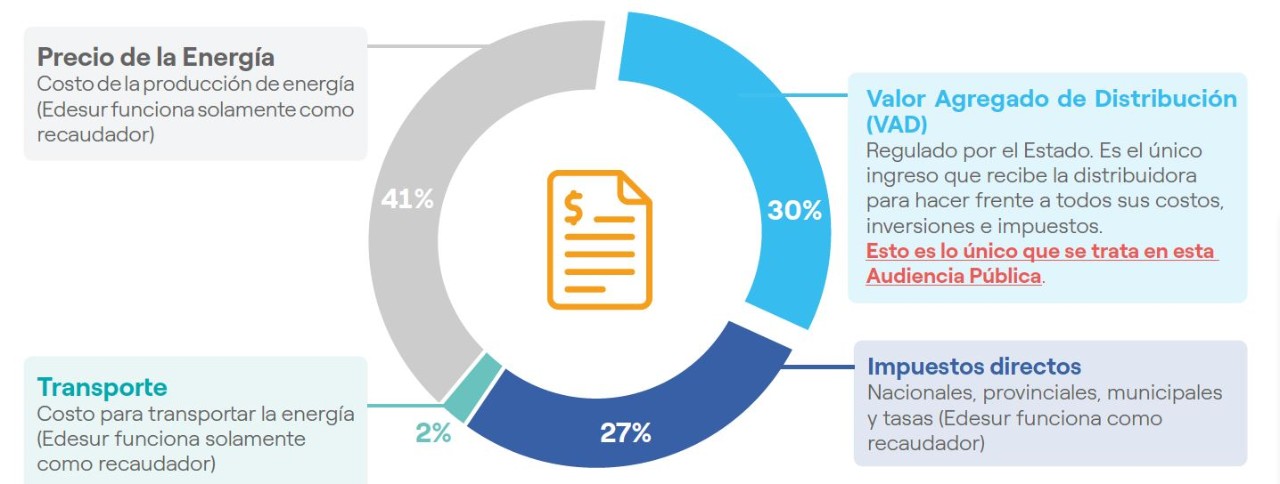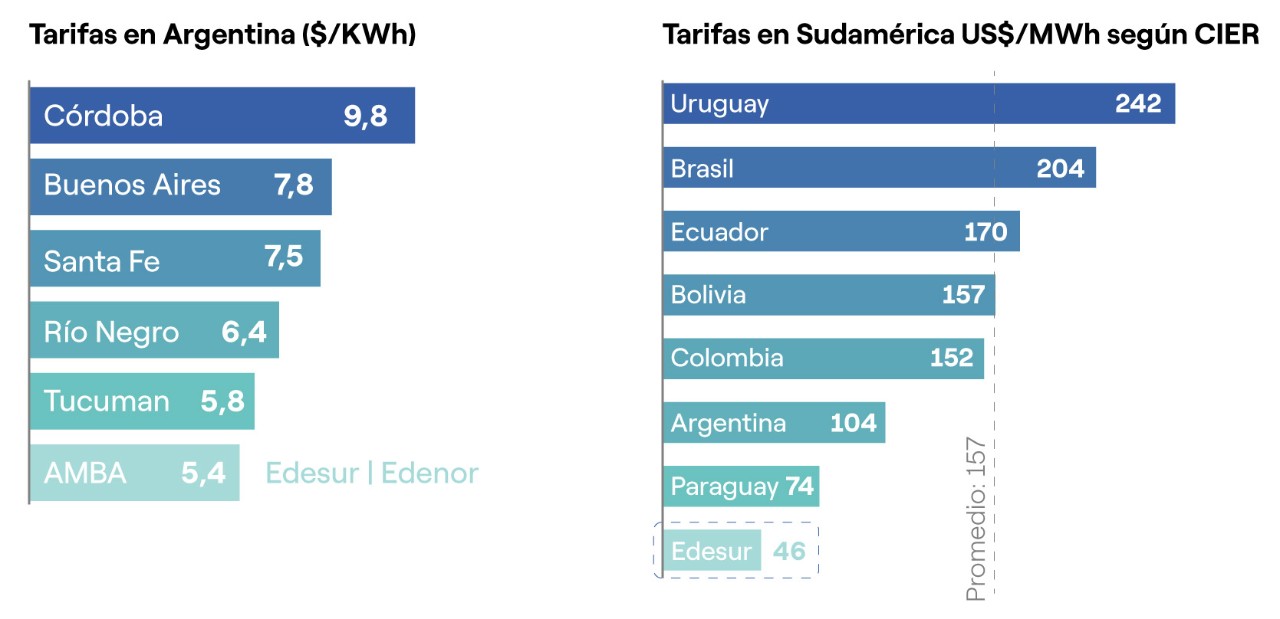Today the public hearing was held in which Edesur S.A., through the participation of its president, Juan Carlos Blanco, justified the request to update the electricity service tariff tables, which have been frozen for two years.
During the mandatory confinement that the pandemic generated, Edesur rearmed its infrastructure so that 1,600 people work from their homes, while another part of the staff did so in person to guarantee the normal provision of the service.
To this were added support works for buildings related to health care, assembly of facilities in field hospitals and assistance in vaccination centers. Attention in digital channels increased 55% during mandatory isolation and interaction through this channel grew 100%, while commercial claims fell -40%.
The quality of the supply showed a significant improvement between the period March and February 2017/18 and against March 2020 and February 2021. According to data audited by the ENRE, the duration of the outages was reduced -59%, while the frequency of cuts fell -40%. Of the last 20 years, the electricity sector operated 18 under emergency.
The lowest rate in Argentina and Latin America
A fact highlighted by Blanco is that Edesur in AMBA has the lowest rate in Argentina (5.4 $ / KWh), against Buenos Aires (7.8), Santa Fe (7.5), Río Negro (6.4 ) and Tucumán with a (5.8). At the regional level, Edesur's rate is 70% lower than the average rate in South America. Thus, the population of Argentina with the highest GDP / capita pays the lowest rates.
Regarding the incidence of rates in different sectors, 65% of residential customers pay less than $ 1000 per month. In this sense, 36% pay bills of up to $ 500, 29% between $ 501 and $ 1000, 24% between $ 1001 and $ 2000, while only 7% pay between $ 2000 and $ 3000 and 4 % more than $ 3000. These numbers reflect that energy service, for most of the residential sector, is cheaper than any other such as cable.
Proposals for tariff unfreezing
Blanco pointed out during the hearing the need for a tariff recovery, since while electricity rates remained frozen, wages increased 82% between March 2019 and December 2020, consumer inflation was 95% and wholesale inflation climbed to 121%.
Meanwhile, Edesur reinvested 100% of the result and ENEL Argentina contributed $ 9 billion between 2019-2020. Thus, in almost 20 years, dividends were only distributed in 2009.
At the public hearing, the president of the company presented two alternative solutions for this transition that can be combined with rates plus subsidies, in order to have the necessary resources to provide quality service.
The first consists of a contribution from users with a new rate schedule as of April 21, plus an adjustment in August. The impact on the residential rate would be 34% and 45% on the average of the rest of the categories.
The second option establishes subsidies for a value of $ 34,260 million without changing the rate schedule.




